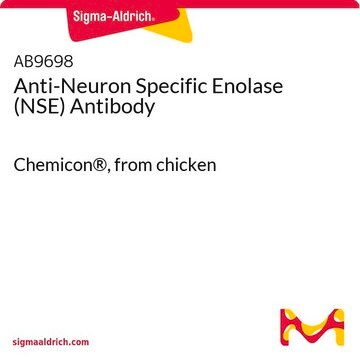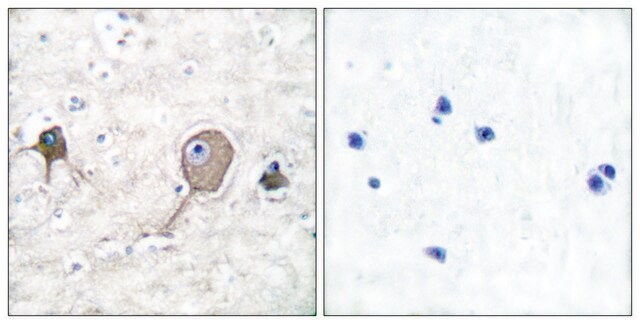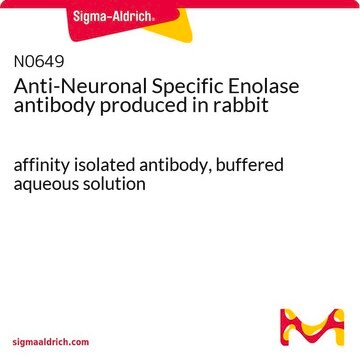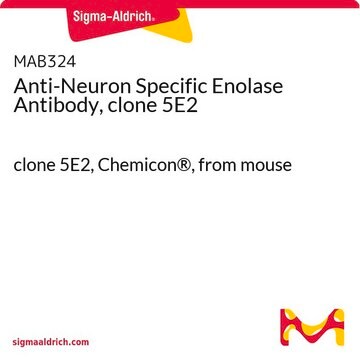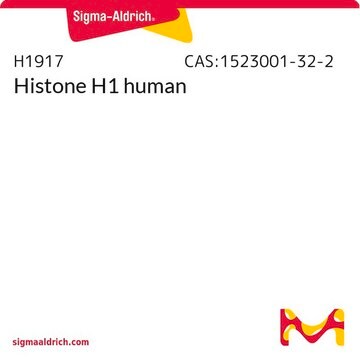SAB4200572
Anti-Neuron-Specific Enolase (NSE) antibody, Mouse monoclonal
clone NSE-P2, purified from hybridoma cell culture
Synonym(s):
Monoclonal Anti-2-phospho-D-glycerate hydro-lyase, Monoclonal Anti-2-phospho-D-glycerate hydrolyase, Monoclonal Anti-Enolase 2 (gamma, neuronal), Monoclonal Anti-NSE, Monoclonal Anti-Neural enolase, Monoclonal Anti-Neuron-Specific Enolase (NSE) antibody produced in mouse, Monoclonal Anti-gamma-enolase
About This Item
Recommended Products
biological source
mouse
conjugate
unconjugated
antibody form
purified from hybridoma cell culture
antibody product type
primary antibodies
clone
NSE-P2, monoclonal
form
buffered aqueous solution
mol wt
antigen ~47 kDa
species reactivity
human, rat
concentration
~1 mg/mL
technique(s)
immunohistochemistry: 10-20 μg/mL using formalin-fixed paraffin embedded human cerebellum.
western blot: 2.5-5.0 μg/mL using SH-SY5Y total cell extracts.
isotype
IgG1
UniProt accession no.
shipped in
dry ice
storage temp.
−20°C
target post-translational modification
unmodified
Gene Information
human ... ENO2(2026)
Related Categories
General description
Specificity
Immunogen
Application
- immunoblotting
- enzyme-linked immunosorbent assay (ELISA)
- immunohistochemistry
Biochem/physiol Actions
Physical form
Storage and Stability
Disclaimer
Not finding the right product?
Try our Product Selector Tool.
Storage Class Code
10 - Combustible liquids
Flash Point(F)
Not applicable
Flash Point(C)
Not applicable
Certificates of Analysis (COA)
Search for Certificates of Analysis (COA) by entering the products Lot/Batch Number. Lot and Batch Numbers can be found on a product’s label following the words ‘Lot’ or ‘Batch’.
Already Own This Product?
Find documentation for the products that you have recently purchased in the Document Library.
Our team of scientists has experience in all areas of research including Life Science, Material Science, Chemical Synthesis, Chromatography, Analytical and many others.
Contact Technical Service

